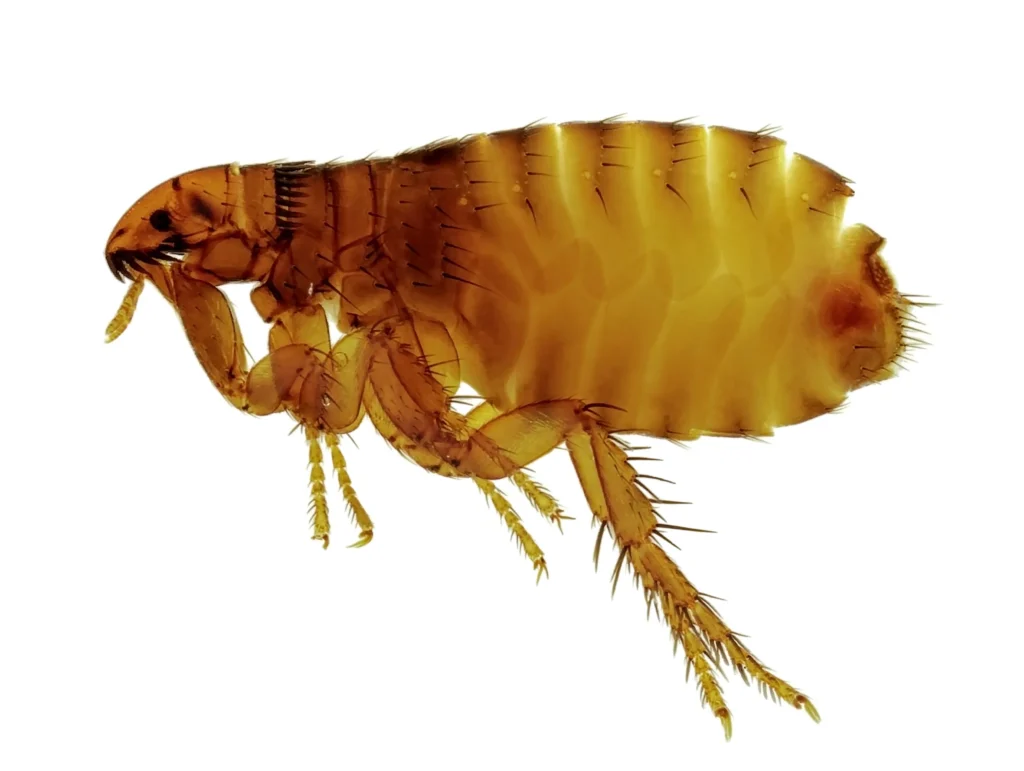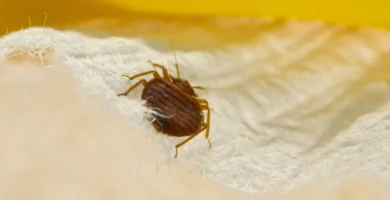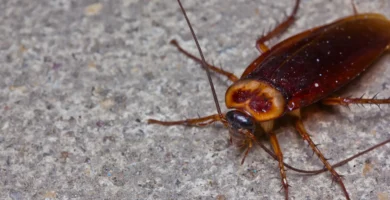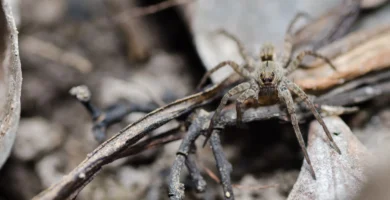
Fleas are a common pest that can infest homes and pets, causing a range of problems from itching and discomfort to more severe health issues. Effective flea control is crucial to prevent and eliminate these pests. In this article, we will explore the importance of flea control, the common signs of infestation, and the best methods to get rid of fleas.
Table of Contents
Understanding the Flea Problem
Fleas are tiny, wingless insects that feed on the blood of animals and humans. They are highly adaptable and can thrive in a variety of environments. Fleas are known to spread diseases and cause allergic reactions in pets and humans. Understanding the flea problem is essential to develop effective control strategies.
Signs of a Flea Infestation
The presence of fleas can be detected by observing the following signs:
- Flea dirt: Dark specks on your pet’s fur or in your home, which are flea feces.
- Flea bites: Red, itchy bumps on your pet’s skin or your skin.
- Flea eggs: Tiny, white, and oval-shaped eggs that can be found on your pet’s fur or in your home.
Health Risks and Damage Caused by Fleas
Fleas can cause a range of health issues, including:
- Allergic reactions: Flea bites can cause allergic reactions in pets and humans, leading to itching, redness, and swelling.
- Anemia: Heavy infestations of fleas can lead to anemia in pets, particularly in young animals.
- Disease transmission: Fleas can transmit diseases such as typhus, plague, and tularemia.
Professional Pest Control for Fleas: Comprehensive Extermination Services
When dealing with a persistent flea infestation, hiring a professional pest control service is often the most effective and efficient solution. These services bring a level of expertise and specialized equipment that can ensure a thorough elimination of fleas and their eggs from your home and pets.
Benefits of Hiring a Professional Pest Control Company
- Expert Knowledge: Professional pest control companies possess extensive knowledge about flea behavior and biology. Their understanding extends beyond just identifying the pests; they know the lifecycle of fleas, including their eggs, larvae, and adult stages. This knowledge enables them to deploy targeted pest control for fleas strategies that address every stage of the infestation.
- Effective Treatments: One of the main advantages of professional pest control for fleas is the use of advanced, specifically formulated treatments. These treatments are designed to target fleas at various stages of their lifecycle. Professional services utilize high-quality insecticides and products that are often more effective than those available over the counter. This includes specialized flea sprays, which provide immediate relief by killing fleas on contact, and flea powders that penetrate deeply into your pet’s fur to eliminate fleas and their eggs.
- Thoroughness: Professionals ensure that every area of your home and pet is treated comprehensively. Flea infestations can be notoriously difficult to eradicate due to their ability to hide in carpets, upholstery, and even cracks in the floor. Professional pest control for fleas includes treating not only your pets but also your home environment, including carpets, furniture, and bedding. This thorough approach helps to prevent re-infestation and ensures that all potential flea habitats are addressed.
Flea Treatment Options from Professionals
Professional pest control services offer a variety of flea treatment options tailored to effectively combat an infestation:
- Flea Sprays: Applied directly to your pet’s fur, these sprays provide immediate relief from fleas. They are designed to kill adult fleas and, in some cases, larvae and eggs. Professionals may use both topical sprays for pets and environmental sprays for home treatment.
- Flea Collars: These collars are equipped with a slow-release formula that repels fleas over an extended period. They are an effective tool for long-term flea control and prevention.
- Flea Powders: Applied to your pet’s fur, flea powders work by killing fleas and their eggs on contact. They can be particularly useful for treating areas where fleas are likely to hide, providing another layer of protection against infestation.
In summary, employing a professional pest control service for fleas not only ensures effective eradication but also provides peace of mind through comprehensive treatment and prevention strategies. Their expertise and specialized tools are crucial for tackling a flea infestation thoroughly and preventing future problems.
DIY Flea Control Methods
While professional services are often the most effective, some DIY methods can help to control fleas:
- Natural remedies: Using natural ingredients like diatomaceous earth, neem oil, and essential oils can help to repel fleas.
- Preventive measures: Regularly vacuuming and washing your pet’s bedding can help to reduce the number of fleas.
Flea Control for Specific Environments
Flea control methods can vary depending on the environment:
- Homes and indoors: Using flea sprays and powders can help to eliminate fleas in your home.
- Pets and lawns: Regularly treating your pet’s fur and the lawn can help to prevent flea infestations.
- Outdoor spaces: Using insecticides and repellents can help to prevent flea infestations in outdoor areas.
Common Flea Species in the United States
Several species of fleas are common in the United States, including:
- Cat fleas (Ctenocephalides felis): These are the most common species of flea found on cats.
- Dog fleas (Ctenocephalides canis): These are the most common species of flea found on dogs.
- Sticktight fleas (Echidnophaga gallinacea): These are found on rodents and can infest humans.
- Ground squirrel fleas (Oropsylla montana): These are found on ground squirrels and can infest humans.
In conclusion, effective flea control is crucial to prevent and eliminate these pests. Understanding the flea problem, recognizing signs of infestation, and using the right methods can help to get rid of fleas. While DIY methods can be helpful, professional services often provide the most thorough and effective solutions.
Other common pests in the United States
14 July, 2024

Pest Control for Ants
14 July, 2024

Pest Control for Bed Bugs
16 July, 2024

Pest Control for Mice
16 July, 2024

Pest Control for Roaches
18 July, 2024

Pest Control for Spiders
16 July, 2024

Pest Control for Termites
17 July, 2024

Pest Control for Rats
Frequently Asked Questions About Pest Control for Fleas
What pest control is best for fleas?
To effectively manage fleas, a comprehensive approach is recommended. The best pest control for fleas involves using flea-specific insecticides that target adult fleas, eggs, and larvae. Products containing active ingredients like fipronil or selamectin are highly effective. Additionally, using sprays and powders for your home can help eliminate fleas from carpets and furniture. Combining these methods with recommended flea treatments for pets ensures thorough pest control for fleas and comprehensive control.
How do pest controllers get rid of fleas?
Pest controllers use a multi-faceted approach to eliminate fleas. They start by inspecting the affected area to assess the extent of the infestation. Next, they apply specialized flea insecticides to infested areas, such as carpets, furniture, and cracks. They may also use foggers or flea bombs for larger spaces. Additionally, they might recommend or apply treatments for pets and conduct follow-up visits to ensure the problem is fully resolved.
Is an exterminator worth it for fleas?
Hiring an exterminator can be a worthwhile investment if the flea infestation is severe or difficult to manage on your own. Professionals have access to advanced products and techniques that may be more effective than over-the-counter solutions. Their expertise in identifying and treating problem areas that might not be obvious to homeowners is also beneficial. However, for minor infestations or if you’ve tried treatments without success, you might consider first using commercially available flea control methods.
What is the best thing to kill a flea infestation?
The best way to kill a flea infestation involves a combination of treatments. Start by treating your pets with veterinarian-recommended flea products. Then, thoroughly clean your home by vacuuming carpets, furniture, and any areas where fleas might hide. Apply insecticides to infested areas and consider using a fogger for larger spaces. Regular cleaning and following your vet’s or a pest control professional’s advice can help prevent future infestations.
What will kill fleas immediately?
To kill fleas immediately, use insecticide sprays or powders specifically designed for fleas, containing active ingredients like permethrin or imidacloprid. These products are formulated to kill adult fleas quickly. Additionally, there are rapid-action flea treatments for pets, such as topical solutions and collars. However, it’s important to note that these methods primarily target adult fleas, so a comprehensive approach to address eggs and larvae is often necessary.
What do fleas hate the most?
Fleas dislike certain environments and substances. They tend to avoid extreme heat and high humidity. Essential oils like lavender, peppermint, and eucalyptus are known to repel fleas. Additionally, vinegar and salt can help dehydrate and kill fleas and their eggs when applied to infested areas. Creating a less hospitable environment for fleas, in combination with other control methods, can be effective in managing and preventing infestations.
How can I prevent a flea infestation in the future?
To prevent future flea infestations, maintain a regular flea treatment routine for your pets with veterinarian-recommended products. For effective pest control for fleas, clean and vacuum your home frequently, especially in areas where pets spend time. Wash pet bedding and toys regularly in hot water. Consider using flea traps and keep your environment free of excess moisture, which favors flea development. A combination of these preventive measures can help reduce the risk of future infestations.
How long does it take to get rid of a flea infestation?
The time required to completely eliminate a flea infestation can vary based on its severity and the methods used. Generally, it can take several weeks to a couple of months to fully eradicate fleas. This timeframe includes addressing adult fleas, eggs, and larvae. It’s crucial to follow a consistent treatment plan and perform regular cleaning to ensure all stages of the flea lifecycle are addressed effectively.
Are home remedies effective for fleas?
Home remedies can be useful as supplementary measures but are generally not sufficient on their own for managing severe infestations. Methods like using vinegar, essential oils, or a mixture of water and salt can help repel or reduce flea populations in the environment. For significant infestations, it’s advisable to use flea-specific products and consider professional pest control to ensure a comprehensive solution.
How does a flea infestation affect pets’ health?
Flea infestations can lead to various health issues in pets, including intense itching, allergic dermatitis, and hair loss. Fleas can also transmit diseases such as bartonellosis (flea-borne illness) and carry parasites like tapeworms. In severe cases, fleas can cause anemia in young or weakened pets. Prompt treatment of flea infestations is important to protect your pets’ health and well-being.
For more information on pest control for other household pests, consult reputable sources such as the Centers for Disease Control and Prevention (CDC) and local pest control professionals.
